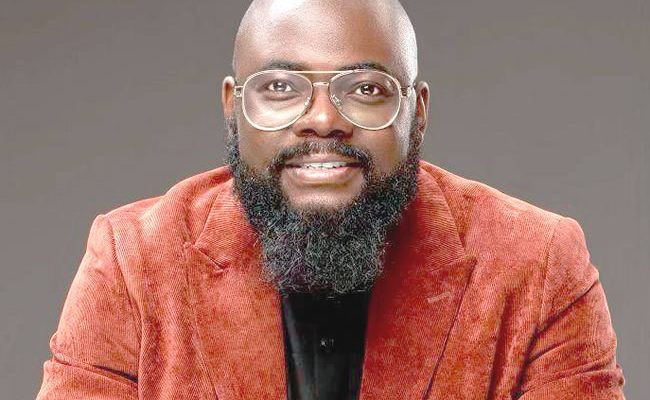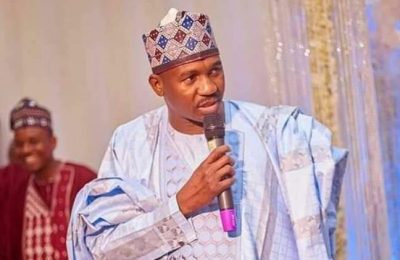

Abimbola Fakeye may not take center stage as an artiste, but his passion and expertise have profoundly shaped the careers of countless Nigerian artistes and the entertainment industry at large. In this insightful interview with ADERONKE ADESANYA, the accomplished entertainment lawyer delves into the significance of entertainment law and highlights how artiste-founded record labels are revolutionizing the Nigerian music scene.
Many Nigerian artistes, especially the up-and-coming ones, do not consider the importance of the legal aspect of the entertainment industry; why?

In general, there is still a gap in legal awareness among many entertainers. While some artistes are well-informed, many still sign contracts without fully understanding the terms or the long-term implications and a lot only retain the services of a lawyer when they run into stormy waters. Part of my role is to educate clients about their rights and encourage them to seek legal advice before making decisions.
How did you become a certified entertainment lawyer?
I studied Law in Obafemi Awolowo University (OAU IFE) and I also had my Law School in Nigeria. I majored in Entertainment Law (which is Intellectual Property Law), I self studied, I invested in books and all. Once you are qualified as a lawyer in Nigeria, you can choose to major in a part you favour the most.
Entertainment law seems to be strange in the Nigerian music industry, what is responsible for this?
The Nigerian music industry’s entertainment law is complex due to several key issues, such as outdated legal frameworks and weak enforcement that hinder the protection of intellectual property rights. Piracy remains widespread, significantly affecting revenue, while limited royalty collection leaves artists without consistent income. Many musicians lack legal awareness, leading to exploitative contracts and informal agreements that are difficult to enforce. Cultural norms favor verbal deals, thereby reducing formal contracts, and making it quite hard for artistes to pursue legal actions. With the rise of digital distribution, Nigeriaartistses face additional global legal complexities that the current system is not equipped enough to handle.
A lot of musical groups have broken up even at the peak of their career, should we say that the ignorance of entertainment law could be the course?
While a lack of understanding of entertainment law can contribute to group breakups, it’s usually just one of the factors. Many musical groups split due to creative disagreements, unequal revenue sharing, leadership conflicts, and other personal issues. Without due legal knowledge, group members may sign contracts that don’t adequately represent their positions, leading to legal disputes over rights, royalties, and individual responsibilities. Clear legal terms could help set guidelines for ownership, earnings, and decision-making, potentially preventing some conflicts. However, personal dynamics and individual ambitions often play a significant role in these breakups.
Many artistes, even prominent ones at present and in the past, and their labels have clashed as a result of contract infringement; why?
Many artistes sign contracts early in their careers without fully understanding the terms, leading to conflicts as they gain experience. Clashes between artistes and labels often arise from disputes over revenue shares, creative control, and contract terms. Artistes may feel their royalty payments are unfair or lack transparency, leading to mistrust. Labels often impose strict exclusivity and long contract durations, which restrict artistes’ freedom. These issues, compounded by limited legal knowledge, often result in public disputes and legal battles between artistes and their labels.
Is it true that label management takes advantage of their artistes through legal means?
I have been exhaustive of all measures to protect my clients against this particular issue. Some label management can sometimes legally exploit artistes through contracts that heavily favour the label’s interests. These contracts may contain restrictive terms, such as long exclusivity periods, high revenue splits in favour of the label, and clauses that limit the artiste’s creative or financial control. Many artistes, especially those new to the industry, may not fully understand the implications and may sign without recognising the potential long-term impacts. In Nigeria, this issue is worsened by limited access to affordable legal advice, low awareness of entertainment law, and the industry’s informal practices, making it easier for labels to legally secure highly favourable terms.
The consistent clash between labels and artists gave birth to the establishment of several record labels in the industry by artists. Is this healthy for the industry?
I will have to say yes to this because the growth of artiste-founded record labels can positively impact the music industry. When artistes create their labels, they gain greater creative control, fairer revenue distribution, and more independence in managing their careers. This shift fosters a more balanced industry, reducing artistes’ reliance on traditional labels and promoting fairer practices and transparency. Artiste-led labels also tend to support emerging talent, adding diversity and fresh sounds to the industry. However, newer labels may face challenges like limited resources and industry experience, which can affect their competitiveness and long-term sustainability.
With your wealth of experience, what do stakeholders in the industry stand to gain with entertainment law?
Entertainment law offers certain key benefits to industry stakeholders, such as securing fair royalties, ensuring steady income for artists and rights holders, and reinforcing creative ownership, giving artists control over their work. A strong legal framework also attracts more investment, boosting industry growth and funding options. For new talent, fair treatment laws prevent exploitative deals, providing a safer path to success. Ultimately, entertainment law strengthens the industry’s global competitiveness by protecting intellectual property and supporting sustainable growth. Another reason entertainment lawyers should be paid as heroes.
Is there any meeting point between copyright law and entertainment law?
Copyright law is a crucial part of entertainment law, as it protects the intellectual property rights of creators within the industry. Copyright law ensures that artistes, writers, and producers have exclusive rights to their work, which helps them control how it’s used, distributed, and monetized. In entertainment law, copyright is used to secure fair revenue through royalties and prevent unauthorized use, enabling artistes and industry players to protect their creative investments and sustain their careers.
Why did you pick entertainment law as a profession?
As a lad, I always had a thing for music, Movies, and artworks in general. Also, law has always intrigued me because it’s a powerful tool for advocacy and change. That being said, my love for creatives is innate because I grew up watching my father turn logs of wood into the finest of woodcarvings. Shout out to my late dad by the way (Late Lamidi Olonade Fakeye). I said if I could not become a creative myself, I would work closely with people with such superpowers. My passion for creativity informed my decision to render my legal expertise to creatives and I am well suited to utilize my legal knowledge in that area of law.
How will you describe your relationship with musicians in the field of your profession?
I am the biggest fan of my clients. I wear so many hats as an entertainment lawyer. I know how to be a fan, a friend, a big brother who wants you to always do well, and most importantly, an adviser. Since the relationship is fiduciary, I have to make sure they are fully protected. I do all these with undying spirit and sometimes they do not have to like when I take the stand, but they would understand later. I see earlier what they eventually see later.
How many artists have you worked with, and how will you describe the relationship?
The numbers increase all the time, it is hard to say off the top of my head. Nevertheless, confidentiality is key in this profession. I can say that I have had the privilege to work with a diverse array of talented musicians, actors, and production companies. Each collaboration has been unique, and I’m grateful for the opportunity to support some of the most creative minds in the industry.
What distinguished you as a preferred entertainment lawyer?
As a prominent entertainment lawyer, I bring deep industry knowledge, a commitment to client advocacy, and a proactive approach to protecting creative rights. I understand both the artistic and business sides of the industry, ensuring clients receive well-rounded advice on contracts, intellectual property, and revenue structures. My focus is on transparency and tailored solutions that align with each client’s career goals while prioritizing fair and enforceable terms. By staying current with industry trends and fostering long-term relationships, I help clients navigate complex challenges, allowing them to focus on their craft with confidence and security.
Does this profession allow the fun and vibes your artistes enjoy?
My profession offers a unique perspective on the creative industry but differs from the fun-filled lifestyle that artistes often enjoy. While entertainment lawyers may attend industry events and network in social settings, their role focuses on managing legal risks, negotiating contracts, and protecting their clients’ rights. They maintain professionalism and boundaries, ensuring that artistes can focus on their craft while lawyers handle the complexities behind the scenes. So, while they experience some of the industry’s excitement, their primary role remains legal and strategic.
READ ALSO: Nigerian Community Greater Manchester commends Nigerian musicians








